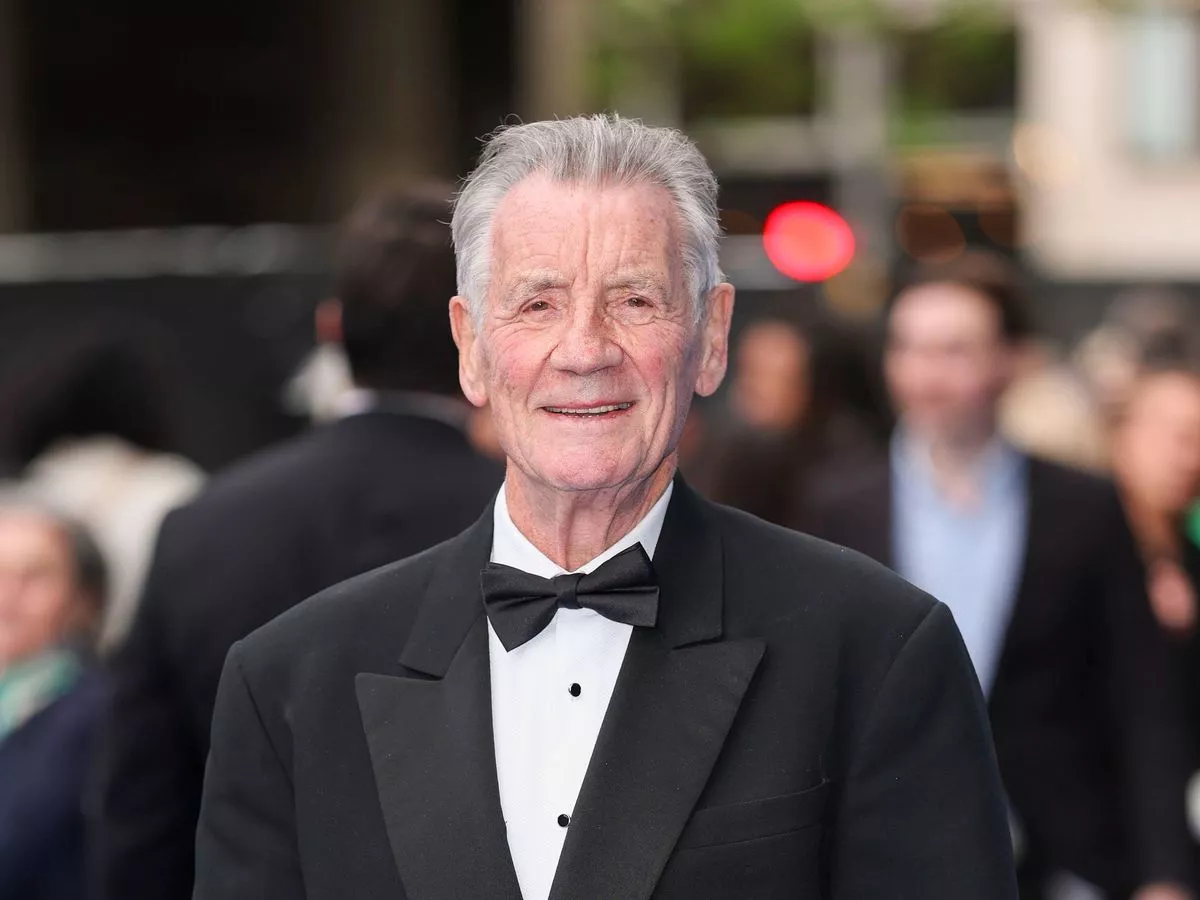After a lifetime spent making people laugh, Sir Michael Palin has recently opened up about some of the most painful and personal moments of his life.
The beloved Monty Python star is now 82 and facing a chapter of life that has brought grief, reflection, and a deep reckoning with mortality.
His voice carries both heartbreak and grace as he talks about losing his wife, Helen, in 2023, and the frustration that surrounded her final years of care.
A Loving Partnership Interrupted by Illness
Michael and Helen shared nearly six decades together—57 years of marriage that began with a teenage romance on a Suffolk holiday.
Their bond remained strong through every phase of life, and her passing has left a deep void.
Helen was diagnosed with chronic kidney disease and had been receiving dialysis treatment at St Pancras Hospital in London.
Unfortunately, the process wasn’t as smooth or dignified as one would hope for someone in such a vulnerable condition.
A Failing Transport System and a Public Apology
The biggest issue wasn’t the medical care itself—it was getting to the hospital.
Helen relied on patient transport, which was managed by DHL under the NHS.
Michael described it as a disorganized and distressing experience.
Drivers often arrived late—sometimes over an hour—or failed to show up at all.
“It was very, very difficult for her,” Michael said candidly.
“The whole system was very inefficient.”
After he spoke out, the NHS issued an apology, acknowledging the failure and stating, “It’s our responsibility, ultimately.”
They noted that in the past two years, they’ve worked hard to improve services for dialysis patients and have received better feedback recently.
Embracing Mortality With Humor and Honesty
Helen’s death didn’t just leave Michael grieving—it sparked deep conversations about death within the family.
Appearing on the On the Marie Curie Couch podcast, he shared how her passing made mortality feel more real, not just for him, but for their three adult children: Thomas, William, and Rachel.
Always one to find humor even in heaviness, he joked that his children had asked, “Have you made a will? Can I be in your will?”
But he’s taken it seriously.
“I’ve made my will and all that,” he said.
“They know where everything is. I’ve handed over my passwords. You never know—you might just get hit by a bus.”
Holding Onto Her Memory, While Facing the Future
Despite the sorrow, Michael said he’s reached a place of peace.
Two years on, he can remember Helen with more calm and less devastation.
“I’m surrounded by her anyway,” he said.
“I’ve got photos. I haven’t got rid of anything to do with her.”
Still, no matter how prepared you try to be, grief has a way of surprising you.
“You don’t know how you’re going to react,” he admitted. “It’s a sucker punch.”
But what’s helped the most? Open conversations.
Even his grandchildren were part of Helen’s final journey.
He said they asked questions about death, illness, and the end of life—and he welcomed that curiosity.
Heart Surgery, Ageing, and the Reality of the Body
Michael isn’t new to confronting his body’s frailty.
Back in 2019, he underwent open-heart surgery to repair a valve—a moment he now credits with saving his life.
He reflects that age brings changes you can’t ignore.
“I kid myself that I’m alright, but then I feel tired, unsteady getting out of bed,” he said.
“The old car’s getting a bit rusty.”
Still, he keeps working and staying active, determined to enjoy life even as he acknowledges its limits.
“I don’t dwell on mortality,” he said.
“I dwell on life.”
Remembering Helen: The Heart of the Family
In one particularly touching memory, Michael recounted a moment while filming in Tibet.
He had reached 12,000 feet and finally got through to Helen on the phone.
“Guess where I am?” he asked.
Her response?
Not quite the poetic exchange he had in mind.
“Well, I don’t care where you are. Where’s the plumber’s number?
The bathroom boiler’s gone and it’s making a terrible hissing noise.”
That practical spirit, he said, summed her up perfectly—and it’s what he misses most.
A Life Well Lived, Not Idolized
When asked how he’d like to be remembered, Michael made it clear: no pedestals, please.
“I don’t want to be exalted. Helen was very strong on that.”
She supported him in his work but never let his fame go to his head.
To her, it was more important whether he could fix a flat tyre than win an award.
Understanding Chronic Kidney Disease
Chronic kidney disease (CKD) was the condition Helen battled before her death.
It’s a slow decline in kidney function that can go unnoticed for years.
The kidneys play a vital role in filtering waste and maintaining blood pressure.
As they weaken, dangerous levels of waste can build up in the body.
Although symptoms often don’t appear until the disease is advanced, early detection through blood and urine tests can make a big difference.
Common signs include fatigue, nausea, changes in urination, swelling in the feet and ankles, and high blood pressure.
People with CKD face higher risks of heart attack or stroke, and in severe cases, may require dialysis or a kidney transplant.
However, managing the condition through diet, medication, and regular checkups can slow its progression.
To reduce your risk:
- Follow medication instructions carefully
- Avoid overuse of painkillers
- Maintain a healthy weight
- Don’t smoke
Life, Loss, and Legacy
Through it all—his grief, his age, his reflections—Michael Palin is choosing to live with purpose and openness.
He’s teaching his family (and the world) that death isn’t something to fear, but something to face with honesty, warmth, and yes, even laughter.
As he put it, “That’s sort of what life is, and I think that’s what death is as well.”
